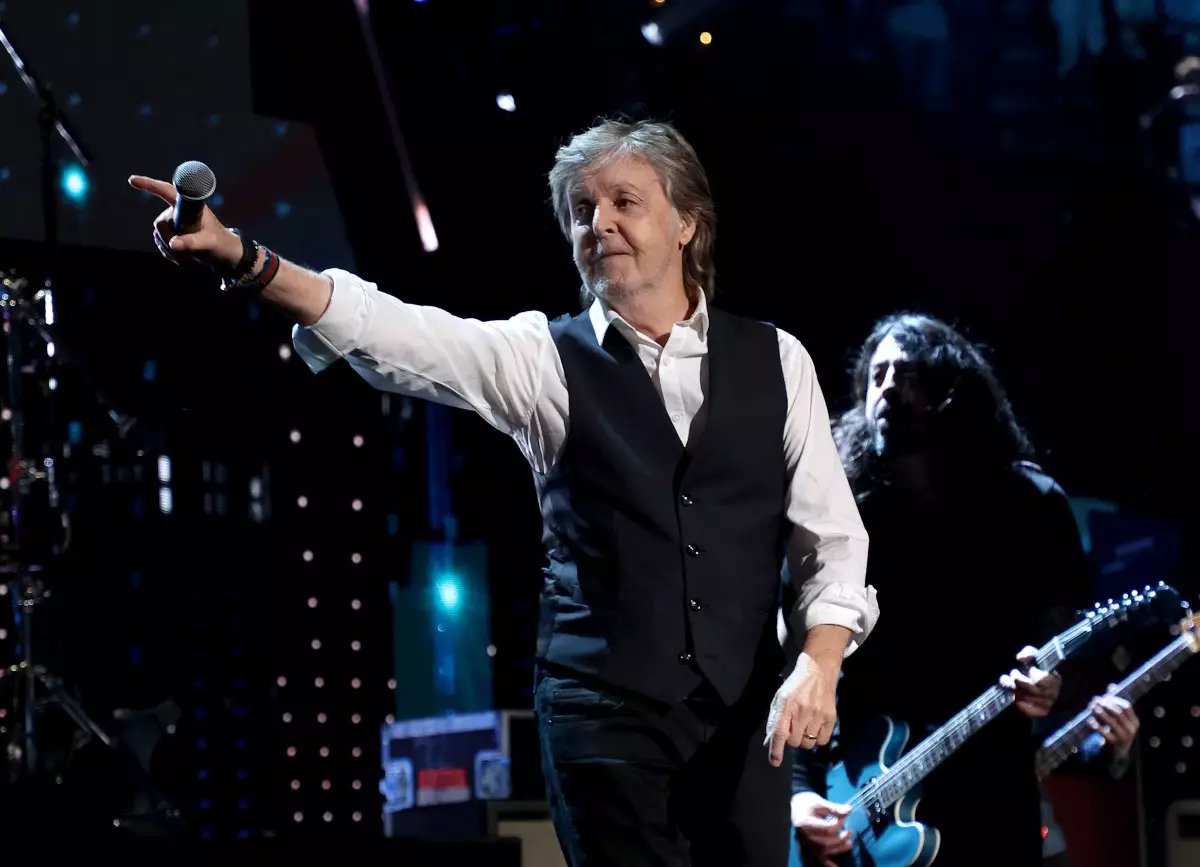In a development that none could have anticipated, The Beatles have been thrust back into the limelight with two Grammy nominations in a year where nostalgia meets cutting-edge technology. The band’s latest release, “Now and Then,” which underwent refinement through artificial intelligence, is competing for Record of the Year and Best Rock Performance. This nomination raises eyebrows—not just because of the band’s enduring legacy, but due to the eclectic competition they face from contemporary artists such as Sabrina Carpenter, Chappell Roan, and Beyoncé. The very existence of this nomination in 2023 teeters on the edge of absurdity while simultaneously sparking intrigue around the marriage of classic rock with modern music innovation.
The man behind this striking revitalization is Paul McCartney, who, rather than using AI to recreate deceased band members with digital facsimiles, has opted for a different approach. By taking a 1978 John Lennon demo, McCartney has leveraged artificial intelligence to enhance a previously poor-quality audio recording. This decision can be traced back to the profound impact of Peter Jackson’s 2021 documentary series “The Beatles: Get Back,” which showcased the band’s creative sessions through archival footage. The sonic clarity achieved in the documentary highlighted the potential of AI, a fact that undoubtedly inspired McCartney as he ventured into the realm of modern audio engineering.
AI isn’t simply a gimmick in this instance; it’s reflective of broader technological trends in the music industry. From feature-rich video conferencing applications like Zoom to the intelligent noise-filtering tools used in recording studios, the ability to isolate specific sounds has evolved significantly. This enhancement of sound quality presents a fascinating parallel to how machine learning can analyze and extract distinct audio elements from a cluttered background. Producer Giles Martin also applied similar AI technologies to remaster The Beatles’ classic album “Revolver,” demonstrating that the blending of AI with traditional music production is becoming commonplace rather than an exception.
As fervor builds around the nominations, it raises an interesting ethical question: Should The Beatles be considered legitimate contenders based solely on novelty? With only 78 million Spotify streams—the lowest among the Record of the Year nominees—the implication is that this nomination is more about reverence for their historical significance than current popularity. It also opens the door to heated debates regarding legacy acts and their place in modern award ceremonies. While some may argue that perennial favorites like Billie Eilish and Kendrick Lamar may outshine The Beatles, there is an undeniable allure surrounding the idea of the fab four competing in the present era.
The situation surrounding The Beatles’ nominations transcends mere music; it encapsulates a cultural moment where history and innovation collide. Their presence in a contemporary awards show challenges the norms governing music recognition today. Are we celebrating the past, or are we witnessing an evolution in how music is made and appreciated? Regardless of the outcome, The Beatles’ foray into the world of AI-enhanced music may leave listeners pondering the relationship between tradition and technology, ultimately redefining what it means to be relevant in today’s fast-paced musical landscape.

